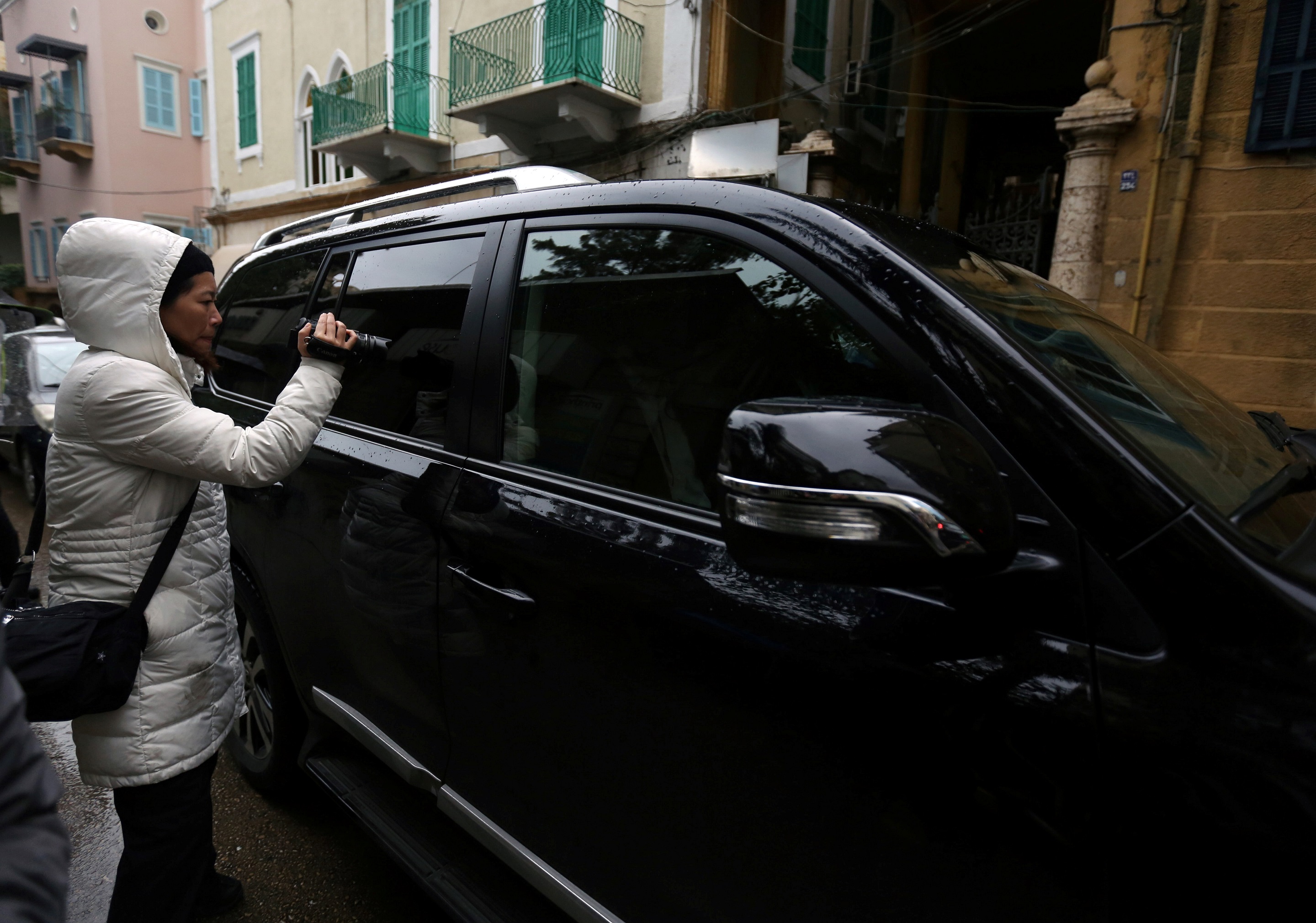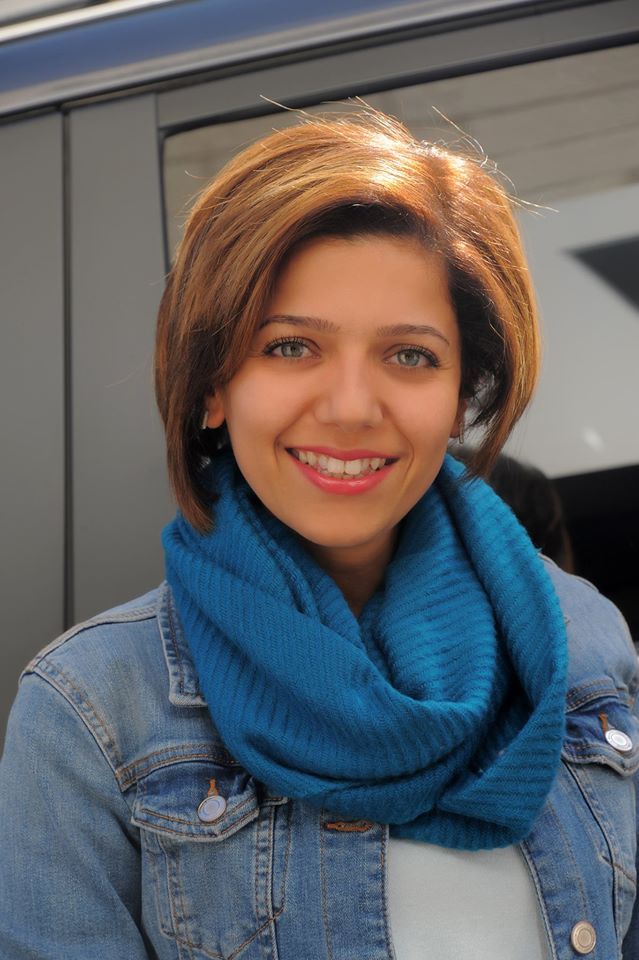باتت القوانين التي تقيد الحريات الإعلامية في تزايد أمام تراجع استقلالية الوسائل الإعلامية وموضوعية الصحفيين، بل تعدى الأمر إلى ارتفاع مستوى الرقابة الذاتية لدى الصحفيين أنفسهم، لتنتصر الحكومات والسلطات العربية في تسليط السياط على الأقلام الحرة من خلال ذواتهم أو من خلال ما يطلق عليه "حارس البوابة".
تنص المادة 19 من الإعلان الدولي لحقوق الإنسان [1] على أنه "لكلِ شخص حقُّ التمتُّع بحرية الرأي والتعبير. ويشمل هذا الحقُّ حريته في اعتناق الآراء دون مضايقة، وفي التماس الأنباء والأفكار وتلقّيها ونقلها إلى الآخرين، بأية وسيلة ودونما اعتبار للحدود". ورغم ذلك، فإن أدوات ووسائل ترهيب الصحفيين في دول عربية ما زالت تتصدر المشهد، بل ذهبت دول مثل مصر إلى أبعد من ذلك عبر سجنهم وتقييدهم بقوانين تكمم الأفواه، عدا عما تتناقله تقارير عن تعذيب واختفاء قسري، أضف إلى ذلك السيطرة على وسائل الإعلام الخاصة لكي تسير في فلك السلطة.
تأتي هذه الممارسات لتساهم في تنامي ظاهرة الرقابة الذاتية رغم تأكيدات الأمم المتحدة على أن ظاهرة "الإفلات من العقاب على الجرائم المرتكبة ضد وسائل الإعلام" يدفع الصحفيين إلى اتباع الرقابة الذاتية، مما استلزم وضع خطة عمل الأمم المتحدة بشأن سلامة الصحفيين ومسألة الإفلات من العقاب. [2]
آفة الإعلام العربي
تعرّف الرقابة الذاتية (Self-censorship) بأنها "قيام الصحفي أو الإعلامي بتجنب الكتابة عن أمور جدلية أو إشكالية لاعتقاده أنها تخالف القانون، أو بسبب خوفه من التعرض للمضايقات والتهديد، أو بسبب سياسة بعض المؤسسات الصحفية". وهو إحدى تبعات تكميم الأفواه من خلال القوانين التي ساهمت في اعتقال كثير من الصحفيين في المنطقة العربية وفي دول تسعى للحفاظ على صورة جمالية أمام الرأي العام الدولي والمنظمات الدولية.
وقد تعرض صحفيون لأشكال متعددة من التضييق خاصة المتابعات القانونية، وباتوا على معرفة جيدة بها، كالتوقيف والاختفاء القسري والتعذيب والسجن لسنوات عديدة، ولّدت لديهم خوفا متزايدا، مع ضعف المؤسسات الإعلامية وغياب استقلاليتها الذي يمثل "غطاء شرعيا" نسبيا للصحفيين أثناء عملهم الصحفي. كل ذلك ساهم في بروز إعلام وظيفته الأساسية تعظيم دور الأنظمة العربية أو مجاملة الحكومات بخطابات رنانة أو ببياناتهم التي تترصد العناوين على حساب هموم المواطنين.
يظهر تقرير لمركز حماية وحرية الصحفيين [3] لعام 2018 أن 92% من الصحفيين الأردنيين ممن استطلعت آراؤهم يمارسون الرقابة الذاتية على أنفسهم أثناء عملهم الصحفي، وهو ما يتضح في اعتقاد 61% منهم أن الحكومة غير جادة في بناء إعلام حر على الإطلاق.
ومما لا شك فيه أن تنامي الرقابة الذاتية لدى الصحفيين تتصاعد وتيرتها على وقع التضييق الأمني الجاثم على كثير من الدول العربية، وأمام تنصل كثير من الإدارات الإعلامية لإحدى وظائفها الأساسية في حماية صحفييها من أي انتهاك، وأمام تخوفات توفير الحماية القانونية حيث يظهر تقرير "حالة البلاد" للمجلس الاقتصادي والاجتماعي أن ثقة المواطن بالمحاكم في الأردن بلغت 73.5% [4].
ويشير تقرير مركز حماية وحرية الصحفيين أن 76% من الصحفيين المستطلعة آراؤهم يرون أن التشريعات الإعلامية في الأردن تتضمن قيودا على حرية الإعلام.
كما أن المطالبات بتعديل قوانين تتسم بتكميم الأفواه لا تنتهي في الأردن، إذ هناك 6 قوانين ما زالت تطالب منظمات حقوقية وصحفيون بتعديل بعض موادها التي تشكل قيودًا على الصحفيين، كقانون العقوبات والمطبوعات والنشر، والجرائم الإلكترونية، ومحكمة أمن الدولة، ومنع الإرهاب، وقانون ضمان حق الحصول على المعلومات.
ورغم سحب الحكومة لمشروع قانون الجرائم الإلكترونية، فإن المادة 11 منه التي تنص على تجريم "كل من قام قصدا بإرسال أو إعادة إرسال أو نشر بيانات أو معلومات عن طريق الشبكة المعلوماتية أو الموقع الإلكتروني أو أي نظام معلوماتي، تنطوي على ذم أو قدح أو تحقير أي شخص؛ بالحبس مدة لا تقل عن 3 أشهر، وبغرامة لا تقل عن 100 دينار ولا تزيد على 2000 دينار" تشكل أحد التقييدات على الصحفيين. ومثلها المادة 118 البند 2 من قانون العقوبات والتي تنص على تجريم "من أقدم على أعمال أو كتابات أو خطب لم تجزها الحكومة ومن شأنها أن تعرض المملكة لخطر أعمال عدائية أو تعكر صلاتها بدولة أجنبية أو تعرض الأردنيين لأعمال ثأرية تقع عليهم أو على أموالهم"، بالإضافة إلى المادة 149/أ من قانون العقوبات أيضا، والمتعلقة بتقويض نظام الحكم السياسي أو التحريض على مناهضته.
أما بالنسبة لقانون منع الإرهاب فتتيح المادة 149 منه لمحكمة أمن الدولة النظر في جرائم النشر، وهي محكمة عسكرية غير دستورية.
ويتعدى الأمر إلى فرض مواد على ترخيص المؤسسات الإعلامية التي تؤسس -بشكل أو بآخر- لتقييد واضح للمؤسسات الإعلامية، بحيث تصبح التصاريح اللازمة لمؤسسات إعلامية تحت غطاء الرقيب، وهو ما يتضح في المادة 23 من قانون المطبوعات والنشر، حيث اشترطت في ترخيص الصحف الإلكترونية أن يكون رئيس التحرير عضوا في نقابة الصحفيين.
جميع هذه المواد قد تفسر بشكل مباشر تصنيف الأردن في المرتبة 130 من أصل 180 بلدا على جدول التصنيف العالمي لحرية الصحافة وفق تقرير "مراسلون بلا حدود" [5].
في المقابل، يبدو المشهد أكثر قتامة في مصر بعد الانقلاب العسكري عام 2013، والذي كرس نموذجا إعلاميا يرسخ حالة فوضوية وفقدانا للمهنية بشكل واضح، إذ صُنفت مصر في المرتبة 163 من أصل 180 دولة على جدول التصنيف العالمي لحرية الصحافة [6].
ويحاكم في مصر عدد كبير من الصحفيين إلى جانب ناشطين، على خلفية الاحتجاجات التي اندلعت يوم 20 سبتمبر/أيلول 2019 وطالبت بإسقاط الرئيس عبد الفتاح السيسي.
كما تتحدث تقارير [7] حقوقية وإعلامية [8] عن تعذيب ممنهج يمارس ضد الصحفيين المعتقلين، فضلا عن التضييق عليهم، إذ اعتقل ثلاثة صحفيين مؤخرًا وهم: مراسل وكالة الأنباء الأميركية "أسوشيتد برس" مصطفى الخطيب من منزله، والمصور الصحفي عبد الله السعيد، والصحفية والناشطة إسراء عبد الفتاح التي تم اختطافها.
صحفية من مصر -فضلت عدم ذكر اسمها لسلامتها- حذفت مادة لها بعد نشرها في صحيفة ما، تقول إن "الموضوع بدأ يتزايد بعد 2015 بشكل كبير، بعدما بدأ المجال العام يضيق ويختنق، والحديث عن مواضيع معينة أصبح صعبا جدا، فمن الصعب مثلا أن نتكلم عن ثورة يناير مثلا، وأنا شخصيا اعتزلت الكلام في السياسة.. هناك مواضيع لا نحبّذ الحديث فيها سواء بيننا كصحفيين أو بيننا وبين الإدارة الصحفية داخل أو خارج مصر، وأصبح عدد الصحفيين الذين يتحدثون عن السياسة بشكل واقعي وحقيقي قلة قليلة جدا".
وتضيف "حاليا في صحيفة إقليمية أحاول أن أتجنب الحديث عن مواضيع سياسية، وحين أكتب عنها أضع يدي على قلبي، ولعل آخرها عن شاب دخل في إضراب عن الطعام ففكرتُ أن أجري معه حوارا، لكني طلبت من الموقع أن يحذف اسمي من المادة، مستحضرة المضايقات والاعتقالات ضد الزملاء الذين يكتبون عن ثورة يناير، أو أي موضوع له علاقة بالأمن. وعلى كل حال، فإن جميع الصحفيين في مصر يخضعون للرقابة، خاصة هؤلاء الذين يقتربون من المواضيع السياسية".
إلى غاية سبتمبر/أيلول الماضي، اعتقل 16 صحفيا في مصر بتهم يتعلق بعضها بالإرهاب و"نشر أخبار كاذبة [9] التي ما زال يحاكم صحفيون عليها رغم انتقادات المنظمات الدولية"، وفق إحصائيات منظمة "مراسلون بلا حدود".
ولعل أبرز سمات الوضع الإعلامي في مصر الآن، هي غياب وسائل الإعلام المستقلة، وقوانين التشهير الجنائية، وفرض القيود الجنائية على نشر المعلومات الكاذبة، وحجب المواقع الإلكترونية (منذ العام 2017 حُجب أكثر من 500 موقع أغلبها إخبارية)، والرقابة على الصحفيين من قبل السلطات، والقيود على تحركاتهم.
الاستقلالية على المحك
هل ما زالت الأنظمة العربية بحاجة إلى ممارسة الأساليب الخشنة لاحتواء الإعلام والصحفيين؟
في مصر، ما زالت القيود بارزة، وبات اعتقال وتوقيف صحفيين المشهد الأبرز مؤخرا في ظل تقارير تتحدث عن ممارسات أفظع، من تعذيب وتضييق واضح واستمرار للاعتقالات وغياب المحاكمة العادلة. لكن هذا ينطبق على الصحفيين الذين يمارسون دورهم خارج المؤسسات الإعلامية المصرية غالبا. وبمعنى آخر، فإن انسجام الخط التحريري للمؤسسات الإعلامية المصرية مع النظام المصري وتوجهاته يجعل من تلك المؤسسات خط الدفاع الأول لأي معلومة لا تتسق مع ما يسعى له النظام المصري.
لكن في الأردن تتضح تجليات الرقابة الذاتية أكثر، فمثلا لم يعد هناك حاجة إلى هذه الممارسات الخشنة في ظل غياب استقلالية المؤسسات الإعلامية التي يبرز فيها مصطلح "حارس البوابة" [10] الذي يلعب دورًا في وضع أنظمة وتعليمات قد تكون شفوية أكثر منها معلنة أمام الصحفيين. وليس مستهجنًا مثلا أن يقابَل الصحفي برفض نشر مادة صحفية أو حتى البدء في متابعة قضية ما، فقط لرفض رئيس تحرير وسيلة إعلامية ما.
تقول صحفية أردنية إن "أيّ شيء يجلب صداعا للمؤسسات الإعلامية مثل المواضيع السياسية والدينية يتم إيقاف الكتابة فيه، والوضع يزداد تضييقا، والتحرير أحيانا يسيء للمادة من قبل المحرر بعد عملية الحذف".
ويعرّف "كورت لوين" (Kurt Lewin) نظرية حارس البوابة الإعلامية بأنها "السيطرة على مكان إستراتيجي في سلسلة الاتصال بحيث يصبح له سلطة في اتخاذ القرار فيما سيمر من خلال بوابته وكيف سيمر، حتى يصل إلى الجمهور المستهدف أو المتلقي"، أي أن المادة الصحفية قبيل وصولها إلى الجمهور تكون قد خضعت للكثير من القص أو الحذف أو اللصق.
في يونيو/حزيران الماضي نشرت منظمة "مراسلون بلا حدود" بيانا صحفيا يوضح منع ثلاثة صحفيين أردنيين على الأقل من نشر مقالات ناقدة حول مؤتمر البحرين، بينهم اثنان يعملان في جريدة "الغد". كما كشف رئيس تحرير موقع إخباري أردني للمنظمة "أن المخابرات هي التي تقف وراء هذه الرقابة، حيث اتصلت الأجهزة الأمنية هاتفيا بإدارات العديد من المنابر الإعلامية آمرة بعدم نشر أية أخبار سلبية عن مشاركة الأردن في هذا المؤتمر".
هنا تصبح السلطة أكثر هدوءًا ورزانة في التعامل المباشر مع الصحفي، فلم تعد بحاجة إلى هذا التعامل في وجود حارس البوابة أو "ضابط الارتباط"، وهو ما يبرر استياء صحفيين كثيرين من نهج تعيين الإدارات الإعلامية في الأردن التي تغيب فيها معايير المهنية والكفاءة مثلا، والذي يجهل الصحفيون أنفسهم سبب اختيار رئيس تحرير ما عن دونه.
الخبير في شؤون حقوق الإنسان والإعلام فادي القاضي يقول إن "السنوات الماضية شهدت استقرارا في طبيعة المؤسسات الإعلامية والصحفية العاملة، وهو استقرار في السياسات التحريرية، واتجاهات ملكية الوسائل الإعلامية، واستقرار للإطار التشريعي، وما هو موجود من عمل إعلامي وصحفي في مصر محدد بسقف أو منعدم أصلا، وبالتالي لا توجد مشكلة رقابة ذاتية، حيث إن المؤسسات الإعلامية منسجمة مع سياسات النظام. لكن في الأردن، السياق أقل ضخامة، ولكن يبدو أنه يتجه نحو الانضباط أكثر، فالمؤسسات الإعلامية تتجه نحو استقرار ما تراه السلطة، رغم وجود هوامش متاحة أكثر من مصر".
وسائل التواصل الاجتماعي في الصدارة
يظهر تقرير "حالة البلاد" الصادر عن المجلس الاقتصادي والاجتماعي أن ثقة المواطن الأردني في الصحافة الأردنية لعام 2018 بلغت نسبة 32%، وهو مؤشر يظهر اتساع الهوة بين السلطة الرابعة في الأردن أو حتى مصر وبين المواطن.
ويوضح الخبير في حقوق الإنسان والإعلام فادي القاضي ذلك بقوله إن "حق الجمهور في المعرفة والوصول إلى المعلومات وإتاحتها من دون قيد أو شرط أو استثناء، لن يقوم إلا على إطار تعددي يسمح بوصول المعلومات إلى الجمهور، لكن هذا الإطار التعددي غير متاح في مصر والأردن لأسباب مختلفة، ولكن القواسم المشتركة تتمثل في استقرار السياسات التحريرية على نمط واحد واقترابها من أي وقت مضى لتبني خطاب السلط والطبقة الحاكمة".
في النهاية، فإن غياب إعلام يحاكي هموم المواطنين هو السمة البارزة التي باتت واضحة للرقابة الذاتية وغياب استقلالية المؤسسات الإعلامية، فأصبحت وسائل التواصل الاجتماعي هي المرجع والمصدر الأساسي للمواطنين، حتى إنها أصبحت تقدم وتفرض على عدد من وسائل الإعلام متابعة بعض القضايا التي تجتاح تلك الوسائل عندما يتصدر وسم معين على شبكاتها.
هذا المشهد فرض اتساع الهوة بين المواطن والإعلام في همومه من جهة، وفقدان الثقة من جهة أخرى، ففقدت وسائل الإعلام دورها كسلطة رابعة في مصر والأردن على سبيل المثال.
* الصورة: عزيز طاهر - رويترز.
[1] https://www.un.org/ar/universal-declaration-human-rights/index.html
[2] https://en.unesco.org/sites/default/files/un-plan-on-safety-journalists_ar.pdf
[3] https://cdfj.org/wp-content/uploads/2019/08/Media-Freedom-Status-Report-in-Jordan-2018.pdf
[4] www.esc.jo/Documents/e13b3d5a-5999-4286-9a71-e26c2feb06bc.pdf
[7] https://rsf.org/ar/news/-194
[8] https://cpj.org/mideast/egypt/
[9] https://cpj.org/ar/2018/07/029550.php
[10] أبو حمام عزام، "نظرية حارس البوابة في البيئة الجديدة للاتصال.. دراسة في الصحافة الأردنية"، دار الصايل للنشر والتوزيع، 2018.








































